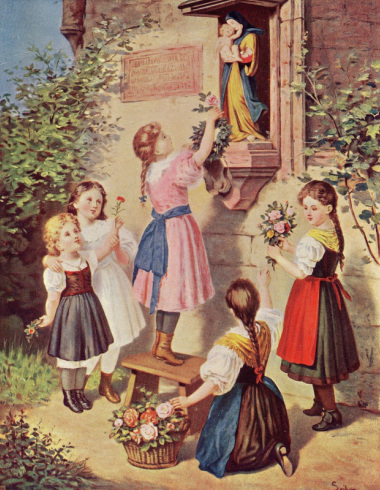
“THE FAITH THAT NEVER DIES”
Imprimatur: 1900
Do My Christian readers clearly understand what it truly is to be a Christian? It certainly is not, as some people with slightly confused ideas appear to imagine, merely to abstain from murdering or plundering your neighbor. To do this is just to escape being a villain, that is all.
To be a Christian is not merely to be a good father, a good husband, a good son, a good workman, and industrious and honorable man, a good comrade, etc.; that is only to be an honest man, and a Christian is something more than an honest man.
To be a Christian is not merely to respect religion, to consider it good and useful, to acknowledge that Christianity has inspired noble deeds; that is imply to judge fairly, and to possess the good sense of an intelligent man: in order to hold such opinions as these nothing is needed but to rise above vulgar prejudices, and to despise the pointless sneers of a shallow philosophy.
Lastly, to be a Christian is not merely to observe certain exterior practices, such as to hear Mass regularly, to abstain, or even to go to confession. These practices, although very excellent, are nevertheless only means by which to become and to remain a true Christian. Then what is the Christian life? And what is a true Christian?
A Christian is a baptized man, who believes with his whole heart all that is taught, in the name of Jesus Christ, by the Pope and the Bishops, who have been entrusted by the Saviour to spread the Christian religion throughout the world; a man, moreover, who observes, as far as human weakness will allow, all the commandments of God and the laws of the Church; and who earnestly strives to the best of his power to imitate Jesus Christ, his God, his Saviour, and his great example.
A Christian is a man who loves God before all things, who would choose to suffer anything rather than to offend Him, who detests sin in others, and still more in himself; he is a man who loves and practices the right, who battle constantly and perseveringly with all his evil passions, and who, in spite of the evil inclinations which will sometimes rage powerfully within him, is still pure and humble, patient and merciful, indulgent to the faults of others, patient and resigned in misfortune.
A Christian is a man who is constant in prayer, and who follows in the footsteps of his Lord and Master, and thus, ever looking to Jesus, learns from Him the daily lessons of virtue that he needs. He pardons his enemies, even as Jesus Christ pardoned His. Like Him he goes about doing good. He loves all men, but especially the poor, the forsaken and the insignificant. In prosperity his heart is ever detached from earth, and lifted up to that heavenly home where the only true good is to be found. In poverty and suffering he is calm and full of hope, remembering that to the sorrows of Calvary succeeds the joy of the resurrection and that, it is only through the cross that we can gain the crown.
A Christian, then, is a living copy of Jesus Christ; a man who loves what Jesus Christ loves, condemns what He condemns, and judges in all things as He judges; and in this man, His faithful servant, Jesus Christ Himself does, in a manner, still live and walk with men. Such is the true Christian, such we all ought to be, such we should all become or remain!
There is no position in life in which it is impossible to be a Christian. In poverty or wealth, in health or sickness, in youth or age, it is all one; and we should each, without exception, be holy, and should model our lives by that perfect pattern which we have just sketched out. Are we true Christians? Do we possess that humility, that singleness of heart, that disinterestedness and the purity of life, which constitute the Christian character? Let the conscience of each of us answer this question! Alas! Mine does not respond to it very readily – and reader, what of yours?
Let us, then, take courage, and turn to the Lord our God. Pagans, perhaps, until now, let us make haste to become Christians. If our own weakness causes us to shrink from such great and serious duties, let us have recourse to that powerful aid which the mercy of God has placed in the bosom of the Church. Let us pray, let us frequent the sacraments; let us seek in the confession of our sins a remedy for the past, and in frequent communion strength fro the future. Let us make a vigorous effort, not shrink from any trouble that is required of us by God; does He not deserve it from us? Life passes quickly! Let us work while it is day: blesses is that servant whom He shall find watching; a few hours of weariness, a few hours of brave and patient fighting, and then, to the passing trials of this earthly probation succeeds the eternal rest, the unutterable gladness promised by the Saviour.
FEAR OF HUMAN OPINION
“I would willingly fulfill my religious duties, but I am afraid of ridicule.” – Then you are afraid to go to heaven, and not afraid to go to hell? You must have a very singular courage and a remarkable determination! O man, feeble and faithless! You are indeed faint-hearted, and should blush for your own weakness and dishonor; for what, I ask, is a greater dishonor than cowardice?
Respect for human opinion in matters of religion is the greatest cowardice of all. It is a voluntary renunciation of that which is holiest and most sacred in man – his conscience. It is a weak abandonment of our most essential rights and of our most important duties! That of leading holy Christian lives, of accomplishing our destiny here, and of saving our soul hereafter! Such cowardice is something worse than weakness; it is a folly and a sin.
You are afraid to say your prayers, to avoid evil company and places of temptation, to go to church, to serve God. And what could be more deserving of honor than a conscientious fulfillment of such duties as these? Prayer, the service of God, and obedience to His law are the marks which most perfectly distinguish us from creatures without reason. For the animal destitute of reason has no eternal destiny, and fulfills all the laws of its being when conscious only of the passing moments of its limited existence. But you yourself are here on earth only that you may hereafter go to heaven; and time for you is nothing but a prelude to eternity. HEAVEN AND ETERNITY! Behold the end and aim of life, the end which should reign supreme above all others, and without which everything is lost. Therefore by not daring to serve God during your life, you willfully renounce both heaven and eternity; you sacrifice God, your own salvation, your own soul, and your own happiness, even as you sacrifice your duty and your conscience to a miserable fear of man, which is a thousand times unworthy of a Christian, and is despicable in a man.
“I should be ridiculed,” you say! What a grievous affliction! What effect would it have upon you? You can surely afford to despise what is so utterly beneath your notice. Supposing men laughed at you because you ate when you were hungry, and drank when you were thirsty, and warmed yourself when you were cold, because you loved your mother, because you were not a scoundrel. I am speaking seriously – would you change, do you think, and try to act in some manner which would give greater satisfaction to those who thus criticized you? You will not trouble yourself to answer such a question? There is that which is more reasonable, more natural, more lawful, and more necessary still; obedience to God your Creator, the practice of religion, and the keeping of His commandments. To fear to be a Christian is to fear to be a reasonable being, it is to fear to be a good, conscientious, and honorable man.
Go, therefore, to confession, coward that you are! And fear God rather than man!
NEGLIGENCE
For many years the world has been devastated by a fatal and terrible sickness, which has made dreadful ravages, in all places at one and the same time: in France, England, Italy, Europe, whether the air be bad or good, the people civilized or barbarous, the whole world suffers from its fatal and deathly influence; and for centuries victims have succumbed to it. You doubtless imagine that I am referring to some one of those scourges which we call pestilence, cholera, typhus fever, etc.: but no; the evil that I would point out to you is still more terrible, and causes the death of a still greater number of men; it not only affects the body, but it also poisons the soul, and its fatal effects endure beyond the portals of the grave.
This deplorable evil is negligence. This it is which causes the ruin of whole families and plunges them into the frightful miseries to which they sooner or later succumb. This epidemic is so much the more to be dreaded because there are no signs which give warning of its terrible approach, and it seizes a man before he suspects it is near; it draws him little by little from his duties to God, and soon after from his duties to his family and toward his fellow-men. This scourge is one of the fatal fruits of original sin.
The first symptoms show themselves, then, on being confronted by some difficulty, you stop, hesitate, and address such words to yourself as these: I cannot! It is too difficult! I have no time! I will do it on some other occasion, but not now! It is not worth the trouble of beginning, because I shall never be able to go on! It is beyond my capabilities! Oh! then, while there is yet time, ask yourself quickly these two questions, and answer them by the light of your own conscience.
1st, What should I do if I were quite assured that directly I had accomplished that which now appears to be impossible, I should receive five pounds as the price of my efforts? 2nd, What should I also do if I were equally certain that I should receive a hundred stripes directly I had yielded to those insidious suggestions of negligence, which I believe at this moment that I cannot resist?
These two questions, with the answer which your conscience cannot fail to give, will prove a sure and simple remedy against the evil I have pointed out to you.
I HAVE NO TIME
Out of ten persons who do not fulfill their religious duties, there are at least six or seven who will say to you when you speak to them about it, “I should be glad enough to do so, but I have not time; every one must gain their living. Religion is good for people with nothing else to do, who can live without working.”
Nothing is more false than such reasoning as this, nothing could be more opposed to the spirit of Christianity; religion is made for all, even as God is the Father of all; and if there were any distinction to be made among men, it would, unquestionably, be the poor and the insignificant who would take precedence in the sight of God.
This is a very common error among the working classes, especially in large towns; and we must say that it entirely results from ignorance. They have and absurd idea of religion – they believe that it solely consists of a very great number of outward observances; and the daily work which is absolutely necessary to workmen in order to gain a living, being evidently incompatible with such practices, they solve the difficulty by the habitual words, which they lay down as an axiom, but which are in truth an unconscious blasphemy: “I have no time.” But tell me, my friend, how much time does it take to love God? How much time do you need to think of Him sometimes during the course of the day; to ask Him to bless you, to crown your efforts with success, and to give you the rest of heaven after your sorrows and weariness of earth? How much time does it take to keep from swearing, to honor your father and mother and lawful superiors, to abstain from drinking, to pardon your enemies, not to return evil for evil, to bear with the faults of others? How much time does it take to be chaste and pure, to turn from evil thoughts, to avoid sinful conversation, to shun such and such a bad companion who would be sure to lead you into wrong? Does it take much time to repent when we have done some wicked foolish thing? Still more, does it take much time to pray morning and evening? In five minutes, in ten minutes at the most, this great duty can be perfectly fulfilled; and where is the man who cannot, if he so will, spare some few minutes, at the beginning and at the end of the day?
But then, you will say, religion commands so many other things. You must hear mass on Sundays and Holydays. You must go to confession, and go to communion, and does not all that take time? That is what I mean when I say I have no time. And what do those who are quite as busy as you are, and often much more busy and still more in need of gaining a salary, and who yet do all that, and more than that? I know some who never pass one week without receiving the sacraments. How do they find time to fulfill their duties? What they do, you can do. It is the will that is wanting, and not the time. The reason that you do not find time, just as they find time, is because you have not the deep conviction that they have of the vital necessity of religion. You consider the body before the soul; they consider the soul before the body. Not that they neglect their families and their own bodily requirements, no; only they know the value and the difference of things, and rule their lives according to the truth.
What would you say if your employer attempted to deprive you of the time to eat? You would leave him, and you would say: First of all, we must live! I say to you still more emphatically: first of all, even before the life of your body, take thought for your soul, which is the noblest part of your self; your soul, which makes of you a man, since through the body we are only animals; it is the soul which makes the man, and distinguishes him from the beast.
The eternal salvation of your soul may not be taken away from you by any living creature, and if any one should attempt to rob you of the most sacred of your rights, then is the time to practice the great Christian rule: To lose everything rather than to lose God.
But it is my calling, you add, which prevents me from attending to my salvation. Is that true? Answer me carefully; for if, after having well reflected, you still answered “yes,” I would say to you: then you must give it up, and find some other. What will it profit you to gain the whole world and lose your own soul?
Therefore, say no longer, I have no time to be a Christian, for you only deceive yourself. Say, if you wish, I have not as much time, or as many opportunities, as I should wish. That may be so, but, after all, it is but the heart and the will to serve Him that God requires, and for this there is no question of time. To him who will not give to God his time, God will refuse His eternity.
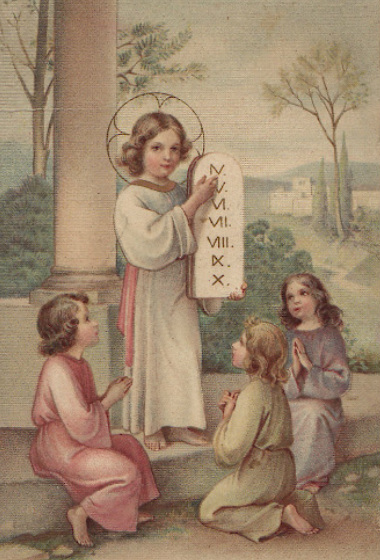
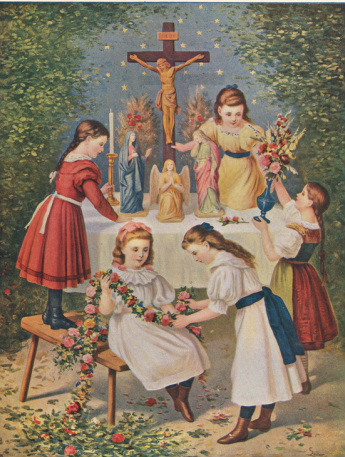
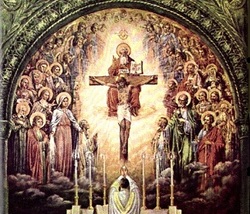
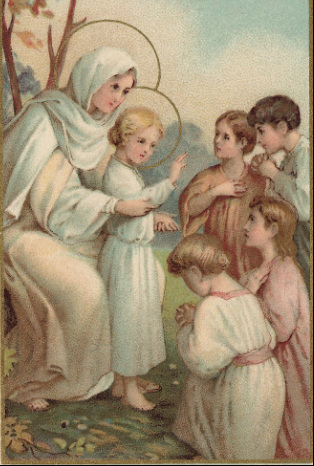
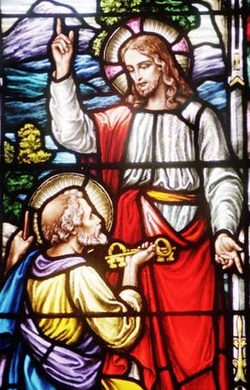

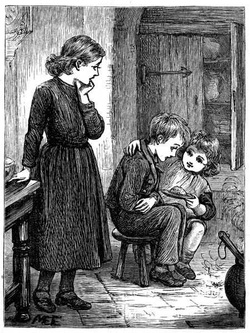

 RSS Feed
RSS Feed